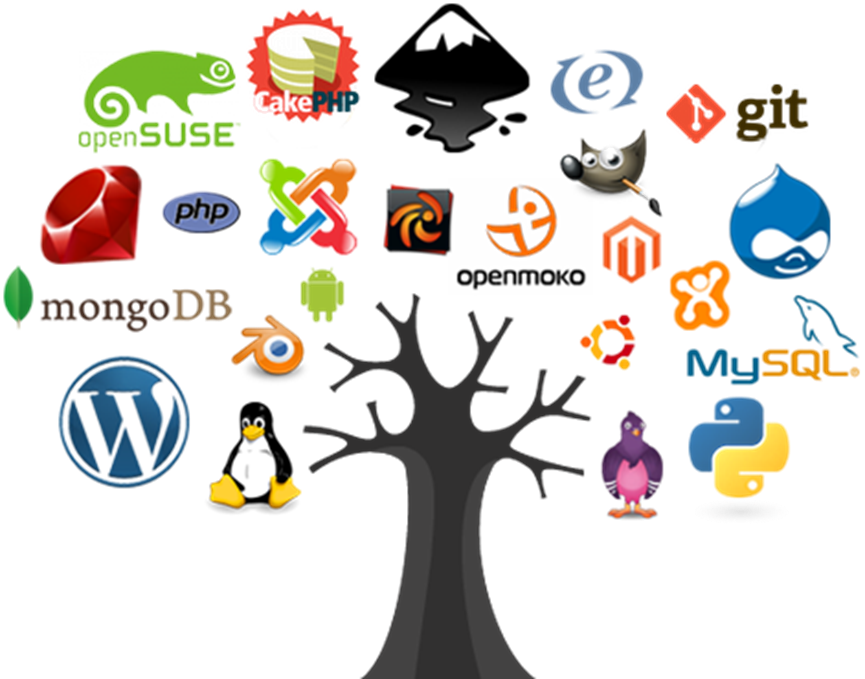Time To Expand How We Define The Public Sector
September 3rd, 2020
The internet is radically changing how we should start thinking of the public sector.
We traditionally think of it as the set of services that anyone in the country, state, city, etc should be able to access. These services have traditionally been controlled by just the government since it used to be the only entity incentivized to optimize for equality of opportunity. The internet has made it such that entities traditionally in the private sector are now also incentivized to optimize for this idea.
Let’s dive into what types of entities are defining this new public sector.
The New Public Sector
The advent of open source software is encouraging both large companies and indie developers to share more of their engineering progress with the world. Some notable examples include Facebook's React and Microsoft's Visual Studio Code. Both projects are completely open source and receive hundreds of contributions from the engineering "public,” rather than any individual company.
These big tech companies are not offering these services out of the goodness of their heart. Their business is _inherently incentivized_ to make their software readily accessible. For Facebook, this has allowed a whole ecosystem to develop and use React, the web framework that their app is built on. For Microsoft, it provides a platform for which they could easily integrate with their other paid services like Azure, funneling potential customers to their cloud offering.

Open source software is not the only domain where organizations have been incentivized to participate in this new public sector. Content creation has emerged as a viable profession. Many creatives are incentivized to put out their work for free, whether that is a podcast, Youtube video, music, etc., because it accelerates their ability to build an audience. Once they have an audience, services like Patreon, KickStarter, and Give Butter allow them to monetize their work while still making the vast majority of it accessible by anyone.
These funding models show another way in which the new public sector is expanding upon the old one. In the traditional government definition, services were not only offered to the public but also funded by the public via taxes. The new public sector is introducing new ways to fund public services. Instead of taxes, we could now fund public workers directly, start campaigns to crowdsource funds, or rely on the wealthier members of the society to support that work. We are also only in the early days of this innovation. In the years to come, especially with the introduction of decentralized cryptocurrencies, technology will revolutionize how projects can be publicly funded.
One final way of thinking about the public sector has to do with accountability. The government definition implements this accountability by providing the public the ability to vote out of office leaders who it believes are doing harm. Though we cannot explicitly vote out the members of the new public sector, the internet has brought on the same level of accountability through social media. In the same way that politicians risk losing votes by not adhering to a certain standard, companies and individuals risk losing funding. There is also now an Effective Altruism growing focused on using evidence to determine which organizations are providing the most social good. Technology continues to knock down the hurdles to information so that we as the public could put our resources, whether it’s votes, time, or money, towards publicly motivated entities.
Equipped with this new way of thinking about the public sector, the question then becomes why does it matter? What does this now do for us? A new way of thinking about the public sector now gives us a new way of thinking about public sector problems.
Problems Facing The General Public
There are several problems facing the general public today. Just in the U.S., conversations circling climate change, education, and income inequality dominate public discourse. Because of the strict coupling between the public sector and government-controlled services, most of the solutions discussed around this space revolve around government policy that people debate implementing.
But we should expand what we consider to be the public sector and open it up to include all the entities that are incentivized to do work that affects the public good.
For example, New Story is not a government entity, yet they are doing unquestionable good for the public. They're a non-profit with the goal of building a world without global homelessness. They're funded through donations and partner with local companies to build homes in communities in need of them.

Charity: Water is a non-profit with a mission to bring clean drinking water to people who lack access to it. They too are funded through donations and partner with hundreds of local organizations in these countries to build sustainable drinking wells that could provide safe drinking water for years to come.

Both companies are prime examples of entities funded by the public, working with the public, and offering services for the public. Despite not being services that are controlled by the government, they should both be considered companies that are part of the new public sector for tackling problems that face the general public. This is exciting news for those of us that do care deeply about these sorts of problems. Our only recourse is no longer to vote for our favorite politician, hoping that they actually win the election and follow through on what they say they will. We are now empowered by the internet to tackle these problems directly through organizations already in the new public sector or through starting our own.
By evolving our definition of the public sector, we will be able to define our own impact on improving the well-being of the general public.